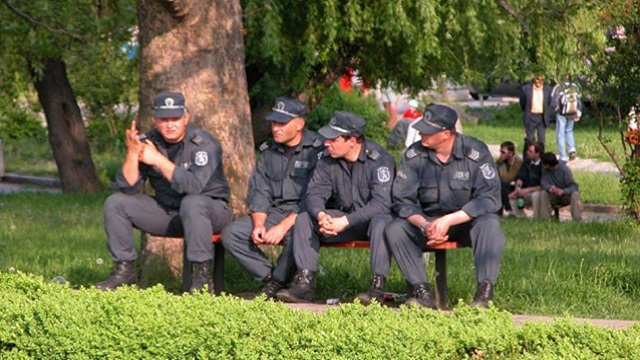In June 2016, an amendment to the Bulgarian Narcotic Substances and Precursors Control Act came into force. Read the notes of an eye-witness.
The Narcotic Substances and Precursors Control Act NSPCA is the legal basis underpinning Bulgarian drug policy. It covers a broad range of issues – from state drugs ideology, through regulation of medical products and industrial cannabis, to health and social assistance, as well as methadone treatment, for those who are addicted in Bulgaria.
Sadly, most of the news was bad: None of the ideas of the reform movement in Bulgaria were represented in the amendment. Quite the opposite – every input into the drafting process was aimed at preventing any possibility of reform.
There was also some good news, however: For the very first time in our history, there was a real battle in the drug policy field – and Mr. Moskov, the Bulgarian Minister of Health and Chairman of the National Council on Narcotic Drugs, couldn’t conceal his surprise at this turn of events. As the Minister with the responsibility for defending the government’s draft before Parliament, he said he was unable to understand the huge public interest in such a simple amendment, with such a clear and honorable aim – which was just to reduce red tape for the pharmaceutical industry.
Now, I have to admit, it’s really depressing, when you see your Minister of Health bullshitting in front of the Parliamentary Healthcare Committee, making it obvious that he doesn’t have a clue what he’s talking about. Mr. Moskov didn’t mention the new charges which everyone working in harm reduction has to pay his ministry in order to have permission to operate. The voices against that unfairness were not heard; the state refused to acknowledge that these new charges take money from the poorest, most vulnerable, most marginalised groups in society, and that it would be difficult to imagine such an idea ever having beneficial results. Hardly anyone was aware of the new arrangement – nor did the Minister say anything about changes to the licensing regime for medical use of narcotics and hemp.
As ever, the main topic of public discussion was cannabis; and as ever, the forces of the status quo were endeavouring to keep that topic as simplistic as possible: “Any change is a danger for our children! Anyone who advocates for change is a bad person!”
Ironically enough, this time it was reformers who opposed the NSPCA’s proposed amendments, rather than the other way around. They asked the Ministry of Health to explain why the draft altered licensing conditions relating to the production, storage, and use of narcotic drugs in Schedule I (which is where cannabis is listed). Without any form of explanation, the amendment stipulated that the Ministry of Health would in future only grant such licences for “medical research” and not for “medical purposes” as was previously the case. The government didn’t suggest any problems with the old licensing regime, or list any failings in the system. Not at all: the explanation given, was that the new wording sounds better!
Even so, there was some gossip that the Ministry of Health had in fact granted so many licences, that they were frightened, in the end, of the situation they had created. But in my opinion, the real motive behind the change was much more cynical: Officers in the Ministry of Health wanted to be sure that no-one could try to use that article to apply for an individual license to produce, possess, or use cannabis for their own medical purposes. The very possibility of that happening, even on an extremely limited scale, looked – to the defenders of the status quo – like leading to the total collapse of their policy house-of-cards. As one of the strongest voices defending that policy (Mrs. Temenuzka Liubenova) simply put it: “Medical marijuana is the road to hell!”
It’s worth mentioning, that medical marijuana has been quite a hot topic in Bulgaria, over the last few years. There is a huge level of activism in that area, with more and more people openly declaring that they use it to improve their heath. Furthermore, some of the legal actions taken against medical users have actually had the effect of gradually shifting public opinion to accept that there are no rational grounds to oppose some form of regulation. The case against Mr. Marin Kalchev, an MS patient who was caught by the police growing two cannabis plants, put the media spotlight onto the issue. Following that case, in October 2014, the National Council on Narcotic Drugs (NCND) – the government body responsible for formulating national drug policy – held its first-ever public meeting, dealing specifically with that topic. At its next meeting, in February 2015, the Council decided to commission two expert reports, on the medical potential of cannabis, and on regulatory practice in the EU. We started, impatiently, to wait for the reports to appear.
This was too much for the circles surrounding Mrs. Temenuzka Liubenova and the far-right National Front for the Salvation of Bulgaria (NFSB) – a minority partner in the governing coalition. Durng the summer of 2015, using their influence within the loose government coalition, they quietly installed the right people in the right positions within the Ministry of Health and the NCND, ensuring that the Council, at its October meeting, unanimously declared that the Republic of Bulgaria has no need of medical marijuana, that no such thing exists, and that people who talk about it are lying. Interestingly enough, no-one even mentioned the expert reports any more after that, and the NCND tried to suppress them. From what we were given to understand, the NSPCA amendment was drafted in the same circles, and the political rationale behind it was clear – the NFSB want to have exclusive control of Bulgarian drug policy, and if they don’t get it, the coalition will be put at risk. And no-one wants to risk the coalition for the sake of medical marijuana.
Even so, the real battle during drafting didn’t concern medical use, but industrial cannabis – hemp.
In theory, hemp has always been legal in Bulgaria. The law (notwithstanding a very unclear legal definition) included regulatory provisions which meant that, under licence from the Ministry of Agriculture, a person could cultivate cannabis plants with less than 0.2% THC.
The first version of the draft didn’t include any change on that matter. The authors hadn’t noticed any problems with the text of the law and the schizophrenic situation it had created: Even if farmers had an undisputed right to grow their hemp plants, they couldn’t do anything with them, once harvested. This is because, according to the Ministry of Health and the Customs – once harvested, the plants are no longer hemp, but a narcotic drug: it doesn’t matter that the percentage of THC is less than 0.2% – it is forbidden to do anything with the plants, which are now considered a narcotic drug, and must be destroyed.
During preliminary discussions on the draft, the Bulgarian Association for Industrial Hemp (BAIH) suggested that Parliament should face up to that problem, and provide a clear framework within which they could process their crop. The reaction of the anonymous authors at the Ministry of Health was amazing: without saying a word to anyone, in the final version of the draft, they inserted text which restricted the licence for hemp exclusively to fibre and seeds, making all other products unlawful, and effectively banning any initiative for farming hemp. So the situation actually became worse for the BAIH, just because they participated in the discussion – and they must learn their lesson from that.
The BAIH complaints about that unfairness, however, somehow managed to impress a section of MPs in the Parliament. Some of them started to remember how, during their childhood years, their grandmothers washed hemp in the river – and other MPs saw a real potential for the hemp industry. Moreover, the BAIH position was then supported by the Bulgarian Academy of Science, which submitted a statement to Parliament, asking it to change the state of affairs, and declaring that the hemp plant has multiple practical uses, with considerable added-value, and with no danger of abuse. At the hearing before the Parliamentary Agricultural Committee, that statement was discussed, and so impressed MPs, that some representatives from GERB, the leading party in the coalition, officially put forward an alternative version of the text, in an attempt to clarify the legal definition. In the end, a working group was created by the Parliamentary Healthcare Committee, tasked with devising a suitable text to cover industrial hemp.
Everything, for the moment, seemed bright.
But the hysterical reaction from defenders of the status quo wasn’t long in coming. The MPs received a letter, signed by Mrs. Temenuzka Liubenova, stating that it didn’t matter what the Academy of Science might have said, such changes were a “danger for our children” and would inevitably lead to the legalisation of marijuana, which was the real objective. Her voice was supported by MPs from the nationalistic NFSB party. They claimed that any alteration of the draft text would “endanger 40,000 Bulgarian children”. As always in the field of drug policy, the claims were not at all evidence-based, but had an emotional impact.
In the end, when the working group came to report its findings to the Health Committee, the Chairperson, Mrs. Daritkova, told MPs to be very careful and responsible with their decision, and then read out a letter from a Custom officer, which explained, in the form of bullet-points, that there is no such thing as hemp, everything is cannabis, that it has no economic value, and that what had happened was just an attempt at legalisation by the back door. No-one inquired what kind of expertise this man might have, or why the chairperson chose to read out his letter, or even how she came to receive it. After her reading, none of the members of the committee dared to formally support the working group’s definition, and it was “rejected in silence”, as Mrs. Daritkova put it. The paradoxical result was that Parliament substantially limited the hemp licensing system, while at the same time saying that it had changed nothing.
So, that’s the whole story of the amendment of the Bulgarian drug law. The conclusion, however, won’t be so depressing. As previously mentioned, this was the first time, in Bulgarian drugs policy, that a real political battle had taken place. Even if we reformers lost on every single point, that didn’t happen because we weren’t noticed: On the contrary, every change in that law was in fact a reaction against us and our ideas.
Over recent years, the Bulgarian reform movement has brought the topic of drugs policy into the mainstream, using debates, TV appearances, strategic litigation, pressure groups, etc. Although still invisible in Parliament, public opinion is slowly coming round to our side. Prohibition doesn’t work.
Of course, there are powerful forces resisting reform; they are experienced players, who have close connections in any government. This time though, they overreacted, and as a result, became much more politically visible – and it is exactly that, which helps us to see the connections and the hidden players within the status quo – what they do and what they say. Next time, we will be much better prepared; so keep an eye on Bulgaria – interesting things are going to happen.
Kalin Anguelov
Member of “Promena Movement” – an NGO advocating for drug policy reform
Lawyer – practising in Sofia
Eye-witness




